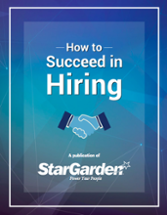Should you use personality tests when hiring?

Hiring is expensive, time consuming, and difficult. Every company wants to hire people who fit in to the corporate culture, contribute to the company’s growth and prosperity, and become happy employees (who stay with the organization). But it’s difficult to know whether your assessment of a candidate based on a few hours of interviews is accurate. That’s why many companies now incorporate a psychological or personality assessment into their hiring process.
History and Modern Trends
Pre-hire assessments that evaluated applicants’ personalities were developed in the 1950s by research teams for large industrial companies.[1] They were designed to identify applicants with personality traits that would be compatible or incompatible with management positions, helping to advance candidates with strong “leadership” potential and weed out candidates who demonstrated traits like “anxiety” or “dishonesty.”
In the 1960s, researchers questioned whether the tests were actually reliable, and their usage dropped; but in the 1990s, industrial psychologists began to again tout their value as a hiring tool. By 2013, 57% of large U.S. employers, including eight of the top 10 U.S. private employers, were using pre-hire assessments for at least some positions (up from 26% in 2001).[2]
Customize assessments for best results
Tests in the past examined only a few broad personality traits, which made them subjective, unreliable, and easy for candidates to manipulate. Modern tests, however, use statistical modeling and algorithms to create customized assessments that can appraise everything from technical and communication skills to personality. Using workflows and integrated HCM software, an employer can customize variables and information to match whether a candidate is likely to be a good fit with the job requirements, the company culture, and even the personalities of his or her intended work team. Modern assessments are designed so applicants can’t figure out the “best” answers to get hired.
The most effective assessments are those that are customized to the job for which you are hiring: hybrid assessments that test each candidate’s aptitude at the essential functions of the job as well as their degree of temperamental match to the nature of the job.[3]
For instance, an effective initial assessment for a traveling cell phone salesman with a global sales territory might evaluate each candidate’s skill at persuasive speech and other sales attributes, their familiarity with the technical aspects of the industry, and their degree of enjoyment for travel.
By identifying the “hard” skills and “soft” personality attributes of your top employees, you can craft an assessment model to screen for both kinds of desirable attributes in new hires.
Use care in designing tests
Companies need to take care to ensure that assessments do not accidentally eliminate minorities or other protected categories – what’s known as “disparate impact” discrimination. This happens when answers that are designed to screen out an undesirable characteristic also screen out a disproportionate number of members of a protected class.
For example, a question such as “Have you ever inflicted physical harm on someone else?” – intended to weed out applicants with a violent disposition – could also eliminate veterans or active-duty military service members, a legally-protected category.
Even if the discriminatory effect is unintentional, if it has the effect of eliminating protected groups, a business must demonstrate that the test is "reasonably related" to the job for which the test is required or be subject to sanctions. A professional assessment company can work with you to ensure you develop a legally compliant assessment that complements your hiring process.
Tips for effectively using assessments
- Develop and administer the proper assessment for the proper job. One-size-fits-all assessments are unlikely to help you place effective candidates into all of your company’s diverse jobs.
- For best results, assessments should only be one aspect of the hiring process, in conjunction with résumé review, review of supplemental materials or answers to questions, and interviews.
- Administer the assessment after you’ve already identified interest in a candidate and conducted initial screening steps – ideally, after an initial phone interview. Many candidates are reluctant to undergo assessments for positions before they are definitely interested, and indiscriminately administering tests to every applicant wastes your time and resources.
Good assessments can be extremely beneficial to the hiring process, helping you narrow down your candidate pool and maximizing your hiring team’s valuable “face time.” For more tips on developing an efficient and well-managed hiring process, check out our complimentary eBook by clicking the image below.
[1] http://www.wsj.com/articles/a-personality-test-could-stand-in-the-way-of-your-next-job-1429065001
[2] http://www.wsj.com/articles/a-personality-test-could-stand-in-the-way-of-your-next-job-1429065001
[3] https://hbr.org/2014/08/the-problem-with-using-personality-tests-for-hiring

